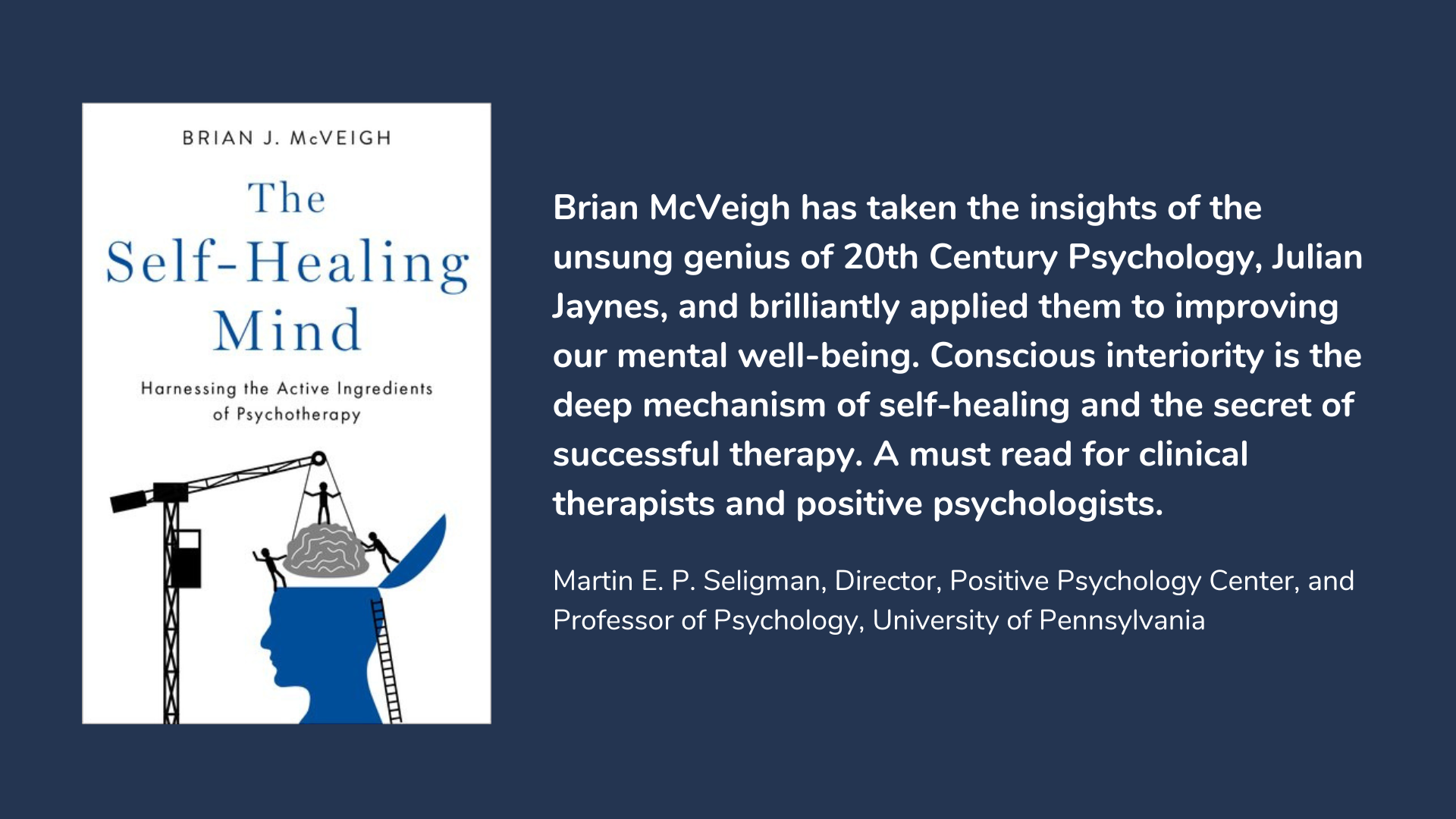The Self-Healing Mind
Harnessing the Active Ingredients of Psychotherapy
Brian J. McVeigh
Evolutionary psychology/psychiatry teaches us about why some mental illnesses developed. However, Brian J. McVeigh, a mental health counselor and anthropologist, argues that much more recent changes in mentality hold lessons about improving our mental well-being. Indeed, through the centuries population expansion and social complexity have forced people to culturally upgrade their mentality. The result is "functions/features of conscious interiority" (FOCI), a package of capabilities that facilitate adaptive meta-framing, i.e., abstracting, analogizing, creative use of metaphors, reframing, and transcending our circumstances.
Adopting a common factors and positive psychology perspective, this book enumerates the FOCI-"active ingredients" -of the self-healing mind: Mental space (introspectable stage for manipulating mental images); introception (employing semi-hallucinatory quasi-perceptions to "see" different perspectives); observing self ("I") and observed self ("me") (increasing role/perspective-taking); self-narratization (intensifying retrospection/prospection capabilities); excerption (editing mental contents for higher-order conceptualization); consilience (fitting conceptions together more effectively to bolster abstraction); concentration (peripheralizing unrelated mental material); suppression (deleting distracting and distressing thoughts); self-authorization (a sense of who or what one's legitimizes one's decision and behavior); self-autonomy (bolstering self-direction and self-confidence); self-individuation (highlighting personal strengths); self-reflexivity (cultivating insight, self-objectivity, and self-corrective abilities). This book shows how FOCI underlie the effectiveness of psychotherapeutic techniques and interventions. Though the psyche's recuperative properties correct distorted cognition and grant us adaptive abilities, FOCI sometimes spiral out of control, resulting in runaway consciousness and certain mental disorders. Also addressed, then, is how snowballing FOCI become maladaptive processes in need of restraint themselves. The benefits of temporarily suspending FOIC (hypnosis) and regulating them (meditation) are also explored.
With insights from counseling, psychotherapy, anthropology, and history, this work will appeal to practitioners, researchers, and anyone interested in how therapeutically-directed consciousness repairs the mind.
Reviews
"I have never read anything quite like this. Brian J. McVeigh takes on the daunting task of integrating a vast treasure trove of resources drawn from positive psychotherapy, common factors of therapeutic change, and a Jaynesian theoretical paradigm. He provides a guide to psychotherapists and their patients to help them explore, understand, and manage real life concerns as they navigate an even murkier internal landscape." - Al Pfadt, PhD, Retired Research Scientist, New York State Institute for Basic Research
"The Self-Healing Mind coherently joins elements of healing and well-being that have long been considered disparate. By integrating the evolution of consciousness with an expansive and multicultural range of psychotherapeutic strategies, McVeigh has created a refreshingly accessible, comprehensive, and practical model for helping people help themselves." - Laurence Irwin Sugarman, M.D., F.A.A.P., A.B.M.H., Rochester, New York
The Self-Healing Mind is available to pre-order from your favorite bookseller and online internationally from Amazon.
About The Author

Brian J. McVeigh has an MA and a PhD in anthropology (Princeton University) as well as an MS in counseling. He is interested in how the human mind adapts, both through history and psychotherapeutically. Inspired by and using the theories of Julian Jaynes as a theoretical framework, he has published extensively on the history of Japanese psychology, the origins of religions, the Bible, spirit possession, art and popular culture, linguistics, and changing definitions of self, time, and space. He has lived and worked in China and Japan for many years, taught at the University of Arizona for ten years, and now works in private practice as a licensed mental health counselor.





